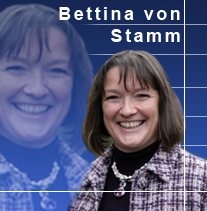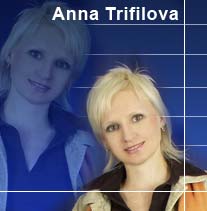|
|
[E100 Alert] – Kaleidoscope of IC Possibilities |
 |
|
|
| |
Ten
years ago, the Global
Knowledge Leadership Map was first created to feature colleagues
globally. Today we represent 165 from 61 countries with the newest additions
of Venky RAO (India), Sorin COSMULESCU (Romania), Dr. Bettina VON
STAMM (UK), Dr. Anna TRIFILOVA (Russia) Dr. Maher CHEBBO (France), and Martin CURLEY (Ireland). With the new year is a good time to check
your own listing to make sure your contact details are up to date! |
| |
|
| |
In
1999, all interviews were analyzed and a vision crystallized in the Global Momentum of
Knowledge Strategy: |
| |
|
|
“Today, we have
‘a common opportunity’
to build a stable new world
order because
the international
economic system has to be rebuilt."
– Dr. Henry Kissinger (2009) |
|
"A
new economic world order based upon knowledge,
innovation, value-systems,
stakeholder success
and international
collaboration.” – E100
Vision (1999) |
| |
|
|
| |
|
Our
community – when established – was unique. It was comprised of knowledge
practitioners who needed to understand the implications of innovation. And,
it included innovation practitioners who needed to focus more on the flow of
knowledge than the flow of technology. We have been successful. The new
concept is Knowledge
Innovation (recently published by the Institute of Certified Financial
Accountants of India); and the concept-in-practice is best operationalized
through Knowledge Innovation
Zones (KIZ). |
| |
|
|
| |
|
During
our E100 Roundtable in Finland (2003), we called for the Bretton Woods
of the Knowledge Economy. We knew the assets to be managed would become
increasingly ‘intangible’ and that intellectual capital would become the new
currency. We published a trilogy of books on this new discipline of Knowledge Economics.
We’ve
examined the attempts worldwide to define the new performance variables and
created the Triple
Knowledge Lens for this new mindset with a Knowledge-based ECONOMY,
Knowledge-based SOCIETY and Knowledge-based INFRASTRUCTURE. Now, we have
premiered the KIZ P7 Blueprint to embed the new measures in an
innovation strategy suitable for an enterprise, nation or societal entity.
It
has taken some time; but the global economic crisis has called the question…and
we have some of the answers. Consider recent developments: |
| |
|
|
| |
|
- The G7 expands to the G20.
- Chief Economist of BusinessWeek calls it ‘Innovation
Economics’ in a recent video.
- Dr. Henry Kissinger, in speaking of US-China relations - acknowledged the need to rebuild the international
economic system.
- Carl J. Schramm, The Kauffman Foundation, speaking
of Innovation
Measurement, says “Innovation propels economic growth. Yet the
measurement of innovation in this country and elsewhere remains
rudimentary.”
- IBM’s Sam Palmisano, in the 2009 Thoughtbook, says,
“I believe that innovation and global integration are two sides of the same
coin. Global integration is the new playing field, and innovation is how
you win the game.”
- “Today’s financial crisis is a harsh reminder
that our financial reporting model, created more than 70 years ago, does
not provide the information necessary today to allow investors to
understand business risks and performance,” said Edward Nusbaum, Grant
Thornton LLP, speaking of Financial
reporting Transparency.
- INSEAD’s Jean Dermine called for a new
international financial order – Bretton
Woods II.
|
| |
|
|
| |
|
So,
the time is now; and the E100 collaborative vision can help chart the way…
|
| |
|
  |
Then,
along come two professors - Bettina VON STAMM (UK) and Anna TRIFILOVA
(Russia) – providing us each individually an opportunity to articulate
our view of the Future of Innovation. Over 35 E100 took advantage and
offered their 500-word capsule. I’ve taken a sentence or two from each below
to provide a glimpse into the diverse facets of our Network and, in some
instances, the commonalities of themes. |
|
| |
|
|
|
| From Jordan… |
|
 |
“The ultimate objective is to enhance living
standards and to catch up with the developed world at the income and
technological frontier through innovation and entrepreneurship. Increases
in labor productivity, well-functioning market economy, institutional
development and necessary government actions are the key to achieving
sustained long-run growth in living standards.” |
| |
|
|
|
| From Malaysia… |
|
 |
“The future of innovation is tightly coupled to its
ability to enable the future in the way aspired by humanity. Humanity is
very often felt through innovation. Humanity shines brighter as innovation
find ways to more and bigger purposes. Humanity is where innovation
triumphs and its future assured.” |
| |
|
|
|
| From Venezuela… |
|
 |
“Innovation is the catalyst element for peace -
helping activism and world leaders to achieve innovative ways to dialogue
and agreements to align commercial and social interest…knowledge and
innovation wealth providing for more prosperity on earth, transforming
societies with reduction of poverty, social exclusion, extremism and
conflicts.” |
| |
|
|
|
| From The Philippines… |
|
 |
“Mankind has demonstrated that its ability to
technologically innovate is greater than its ability to anticipate, learn
and solve the negative social consequences. We are forced into a common
journey of learning how to live together and creatively convert our ethnic,
religious and political diversity from a disadvantage to an advantage.” |
| |
|
|
|
| From Sweden… |
|
 |
“The 21st century is the century of intellectual
venture capitalists, those who make geo-economic changes and move to new
places by acquiring a sense of discontinuity…knowledge entrepreneurs who
are willing to undertake risks – that is, they have the ability and the
potential to transform knowledge and intangible assets into wealth-creating
resources.” |
| |
|
|
|
| From France… |
|
 |
“We should imagine the future and be inspired by
the best from the past. Innovation is a process from idea to sustainable
success. Connected human knowledge cultivators work in perfect synergy with
artificial knowledge processors. They learn from one another… computers
performing tasks difficult or impossible for humans to do.’ |
| |
|
|
|
| From India… |
|
 |
“The future of innovation will harness the creative
capabilities of the entire global ecosystem - innovators (individuals,
organizations, countries and regions) who understand and tap the
virtualization benefits that involve global trade in the flat world. It
will employ social networking and crowd sourcing to tap into larger creative
capital.” |
| |
|
|
|
| From Latvia… |
|
 |
“Only combination of all components related to
innovation – knowledge, creativity, intuition, communication,
non-traditional way of thinking and ability to find new “solutions for old
problems would bring us” to the welfare and harmonized with nature life on
the planet under the name “Earth”. |
| |
|
|
|
| From Germany… |
|
 |
“We were ‘innovating from the heart’ - not just on
product or service innovation, but on innovating the ways we worked
together so we could protect our people and still succeed economically. By
bringing everyone into the process, we were able to eliminate 50 percent of
the costs, expand business and provide stable employment.” |
| |
|
|
|
| From Canada… |
|
 |
“The introduction of a technology is not sufficient
to enable new possibilities. What’s necessary is our readiness to perceive
that technology’s value and meaning within our lives. We believe that true
innovation occurs by matching breakthroughs in science and technology with
the needs, desires, expectations, and latent behavior of potential users.” |
| |
|
|
|
| From France… |
|
 |
“Collaboration, complexity and interdisciplinary
research are the future of innovation. We understand in Europe that we
cannot compete with India and China on cost alone, innovation is the key
and should be based on originality, quality, service, safety, and
environmental responsibility. We should turn the challenges of
globalization into opportunities.” |
| |
|
|
|
| From Spain… |
|
 |
“From a global point of view, the concept of
network is a key concept for future scenarios of innovation, where the
nodes, the links and the nature of the connections will facilitate or
hamper the process of generating an innovative future. The challenge of the
future is to move from thinking and acting through networks towards
thinking and acting in networks.” |
| |
|
|
|
| From Canada… |
|
 |
“With the Internet, information and knowledge are
being shared like never before. If we seek only to emulate best practices,
we will always be running behind. The hope for the future is to lead
innovation - create new and better practices for our industries. This requires
gathering knowledge of what others are doing and using that knowledge to do
something better, faster and with totally new spin.” |
| |
|
|
|
| From Spain… |
|
 |
“The survival of companies is becoming increasingly
uncertain due to the risk surrounding them, the unexpected and the competition.
Intelligence of a few technocrats, even the most brilliant of them, is not
enough to face these challenges. Only the intelligence of all the employees
can enable an organisation to live through the ups and downs entailed by
the requirements of the new environment.” |
| |
|
|
|
| From Ukraine… |
|
 |
“The very nature of competition should be revised.
The prevailing point of view that the primary goal of management is to beat
the competitors, to destroy their businesses and probably the whole lives
leads us from disaster to disaster. World wars and repeating world
economical crisis show that in the world, we are becoming more
interdependent. This approach should be treated as an obsolete rudiment
from our animal past.” |
| |
|
|
|
| From Croatia… |
|
 |
“Worldwide, many respected experts on managing and
measuring IC are actively contributing…Others still ignore the existence
and impact of a new economic reality and provide outdated solutions for new
problems. Too many political leaders make decisions regarding economic
development of their countries, without consideration of new age needs.” |
| |
|
|
|
| From Denmark… |
|
 |
“The bad news is that innovation doesn’t flourish
in most companies… conventional hierarchical organizations that focus on
shareholder value. The good news is that is not impossible for a
conventional, hierarchical company to transform itself into an innovation
powerhouse. The recipe is simple: meaningful business, win-win
partnerships, collaborative organization, and value-based leadership.” |
| |
|
|
|
| From Turkey… |
|
 |
“Redefine the roles to be shared by the state and
enterprises; Create new perspectives in development that would be shared
among the developed and less developed countries; Establish new governing
globalization replacing institutions like WTO; Spread the research and
development culture to the energy, health and finance sectors with a new
focus on systems and services; and Improve the transparency and ethical
business implementations by new regulations.” |
| |
|
|
|
| From Israel… |
|
 |
“The current Innovation paradigm has the shape of a
pyramid – at its top, few “creative people” come with some brilliant ideas;
at the second level, a larger proportion of the population develops these
ideas; then, we have even a larger group that implements them; and finally,
most of us consume the outputs. What if such organizations would 'square'
the pyramid and many of the stakeholders would participate directly in the
upper level of the innovation pyramid.” |
| |
|
|
|
| From USA… |
|
 |
“The future of innovation lies in the strengthening
of connections and relations between the individual’s external reality and
the internal functioning of the mind/brain, and among our social networks -
(1) the hierarchy of invariant forms in the human cortex, (2) associative
patterning throughout the mind/brain, and (3) new forms of social
networking that make exponentially increasing information patterns readily
available to growing numbers of people around the world.” |
| |
|
|
|
| From USA… |
|
 |
“Critical success factors, (CSF) leading to
successful innovation can include: communicating with your unconscious and
listening to its ideas; working with your emotions to enhance awareness and
utilization of ideas through playing and excitement; building the right
content of information; working in an enriched environment, playing with
ideas; exploring and dialoguing with two others; and a willingness to risk
being wrong.” |
| |
|
|
|
| From Romania… |
|
 |
“‘Memorable verses from great poets of
the world can be applied to specific business situations: project design,
business plan, and research & development. We need to appeal that
inward zone of our thinking system referenced by William Wordsworth in his ‘Ode to
the Daffodils’ - creation, inspiration, vision, and perspective.” Innovators of Today = Poets of Tomorrow." |
| |
|
|
|
| From Germany… |
|
 |
“Innovation is important not only for life and the
well-being around the world, but also for economic ambitions. In spite of
all the visions of knowledge and innovation sharing for the better of all,
we cannot deny the era and the conceptual ubiquity of ‘coopetition’, the
simultaneous cooperation and competition. Ignoring issues of knowledge
leaking and losing competitive potentials freely, is naïve.” |
| |
|
|
|
| From USA… |
|
 |
“Considering innovation as simply a business
process negates the creative “messiness” of innovation as a social activity
that depends on many conversations and interactions. Innovation is not a
mechanistic process – it is an emergent property of human networks – from
ideation through commercialization.” Value network analysis describes how innovation networks convert intangibles and ideas into economic or social value. |
| |
|
|
|
| From Israel… |
|
 |
“Human welfare depends on societal organization
more than on technological development. Today every country influences
another. A few examples from among many are: pollution from every country
has influence beyond its borders. Fundamental concepts and methods of
political organization will inevitably change in the 21st century.” |
| |
|
|
|
| From Spain… |
|
 |
“The future of innovation is the artscientist’s
capacity to integrate the diversity of critical and creative expression
without boundaries. Emerging practitioners are at once embracing both the
arts and sciences. In a new trajectory of socio-cultural development the
arts are entwining with the social sciences, physical sciences, and
technologies. Trans-disciplinary creators are building Artscience.” |
| |
|
|
|
| From Israel… |
|
 |
“Only innovative thinking and innovative doing will
make it possible for our civilization to survive. My vision for the future
of innovation is that it emerges out of multiple perspective conversations
in conversing families, conversing organizations, conversing communities,
conversing cities, conversing regions, and a conversing world.” |
| |
|
|
|
| From USA… |
|
 |
“Examples of innovative and creative solutions to
alleviate poverty and to improve the quality of life of the local
population abound. Innovative solutions need not be complicated and the
efforts to collaborate with the local indigenous population must seek to
leave behind institutions and civil societies that are, or have become
stable, competent and self-reliant. Only then will peace endure.” |
| |
|
|
|
| From Palestine… |
|
 |
“Innovation should be a tool for survival and life continuity under conflict, poverty and human hardship. Human determination is an asset that should be best invested to facilitate the emergence of more connected societies whose fabric becomes consolidated with communications and information access as well as wider dissemination of ICT intothe lives of citizens - even on the governance level” |
| |
|
|
|
| From Finland… |
|
 |
“Is innovation always good? Is an innovation
beneficial for people in the long run? What is the total value of an innovation
including the indirect and intangible consequences? What does a responsible
innovation process look like? These fundamental questions are difficult to
answer, but it appears few are even trying.” |
| |
|
|
|
| From The Netherlands… |
|
 |
“The challenge we have at the moment is to move from
innovation being a key issue in some organizations and for some governments
to an overall innovative economy. Will the current economic crisis be the
catalytic factor that will take us there? Society as-a-whole also needs
long term investment and vision. Sustainability is the key.” |
| |
|
|
|
| From Austria… |
|
 |
“‘Free flow of information’ may lead to information
overload. Given the volume of data available on the Web accessible on a
global scale – as soon as political barriers don’t block it and language
barriers don’t hinder it - no single person has a chance to make use of all
kinds of data published within areas of interest and during the whole
lifetime.” |
| |
|
|
|
| From India… |
|
 |
“By creating a distributed and self-organized
sense-making system the firm becomes a fluid, agile, porous, and social enterprise,
that is quick to sense, discover, and act in areas in which it operates. The future of innovation is in creating such natural,
organic, ecosystems which people have a hand in defining, “and are in turn
defined by it.” |
| |
|
|
|
| From South Africa… |
|
 |
“Can innovation be legislated? The generation of
knowledge in the countries with limited numbers of knowledge workers makes
‘catch-up’ a losing strategy, and close attention needs to be placed on
understanding how to incorporate international collaboration, ‘open
innovation’, ‘Living Lab’ approaches, and new ways of addressing intellectual
property to allow the economic potential to be realized.” |
| |
|
|
|
| From USA… |
|
 |
“Leadership in the Knowledge Economy is different
from the industrial or information economies. It is an economy in which the
innovation capacity of every human being, enterprise and nation is fully
engaged. It is an economy in which culture and heritage are respected,
commonalities are more important than differences, and aspirations can be
shared. It requires a fundamental new mindset and common language to
harness capabilities across a global, networked world.” |
|
| |
|
|
| |
|
Today,
trade routes morph into trade ‘nodes’- or zones of innovation. Nurturing and
managing the instantaneous flow of knowledge in these market spaces – Digital Cities, Internet Villages, and Knowledge Corridors – requires innovation strategy
to replace traditional business planning practices. |
| |
|
|
| |
|
Economists
and business leaders globally are coming to agreement: Innovation is the best
way to build a future within which we all thrive. With the recent collapse
of old structures, we should architect new rule-sets to guide our
collaborative innovation. As affirmed at our E100 Helsinki Roundtable, we
need a Bretton Woods for the Knowledge Economy - purposed to create a global
innovation platform for peace and the World Trade of Ideas |
| |
|
|
| |
|
What lies in the future? |
|
|
|
| |
- The book – Future of Innovation – includes selected perspectives and will be published by John Wiley & Sons. The editors have established a website where all contributions – 350 from 57 countries - will be available - http://www.thefutureofinnovation.org/.
- The XX ISPIM Conference – with the theme – ‘The Future of Innovation’ - will be held in Vienna - http://conference.ispim.org/. Hold the dates – 21-24 June 2009!
- “The Trapeze Parable of Knowledge Innovation” will be delivered at the 3rd International Congress of IFKAD in Glasgow, Scotland, 17-18 February, 2009 - http://www.ia-centre.org.uk/.
|
| |
|
|
| |
|
And
so, we are suspended between a world based upon financial capital and one based upon the interdependencies and intangible IC wealth – emerging Human,
Relational and Structural Capital value drivers. We are all playing an
integral role in that evolution. |
| |
|
|
| |
|
Imagine
the future we WILL innovate…together! |
| |
|
|
| |
|
Debra |
| |
|
|
| |
|
NOTE:
Knowledge Innovation® is a registered trademark of ENTOVATION International
Ltd. |
| |
|
|
|
|
